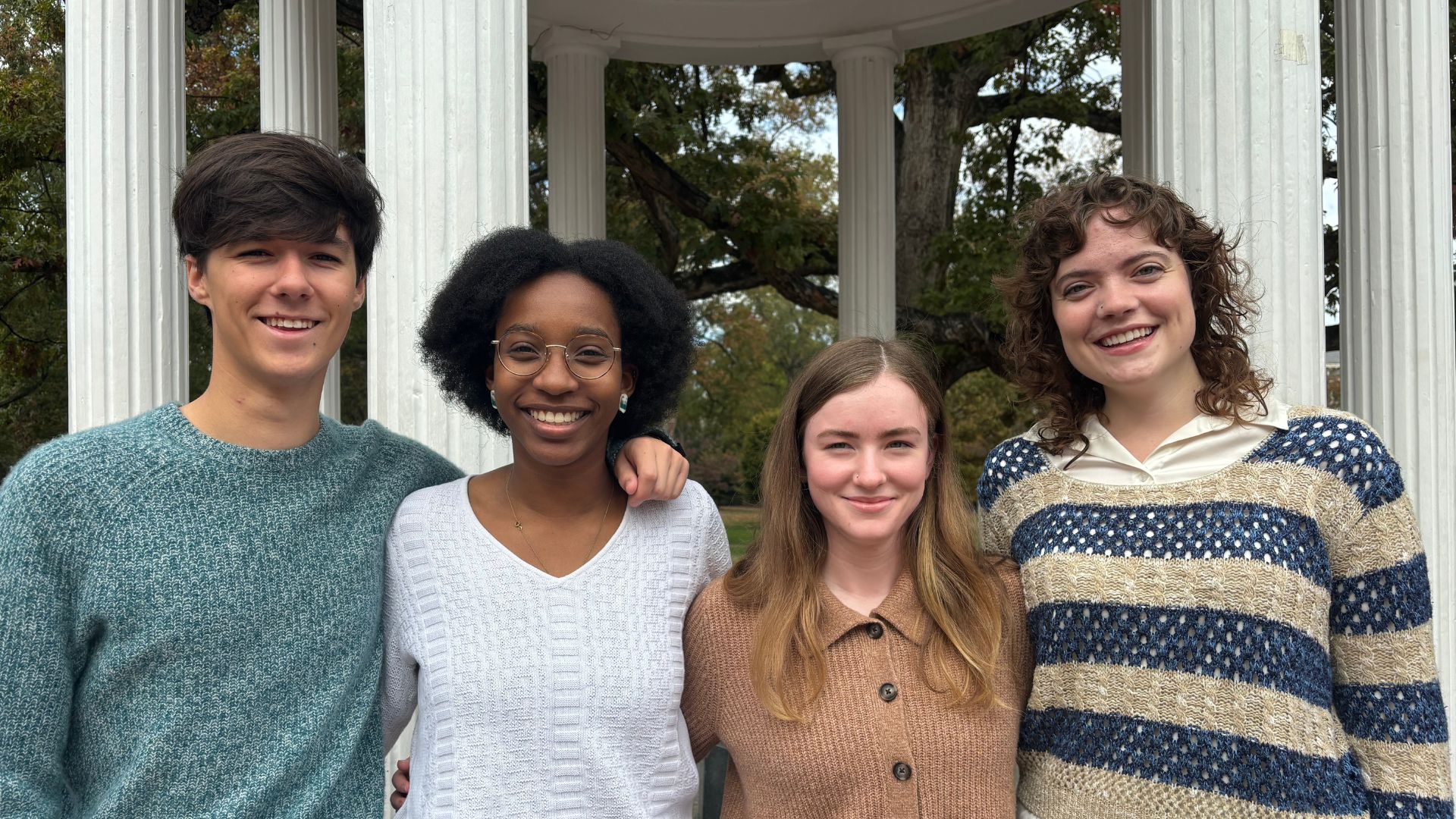
This year, four students have been selected to participate and gain hands-on experience at the world’s most influential climate policy event, the 28th Conference of Parties (COP28), an annual meeting of the United Nations Framework Convention on Climate Change (UNFCCC). Representatives from nearly 200 countries and tens of thousands of civil society, business, and youth will gather to discuss collective progress towards needed climate action to avoid the most dangerous impacts of climate change. The students applied to attend as student delegates for UNC, which has had official “observer” status as a “Research and Independent NGO (RINGO)” at the UNFCCC since 2017. Since DDL Director Angel Hsu joined UNC’s faculty in 2021, she has coordinated student delegations to COP as the focal point for UNC. She has participated in COPs since 2009.
Learn more about the students:
Senam Adedze is a senior geography major with minors in data science and French. At COP28, she will focus on the rhetoric of assigning responsibility for climate change, particularly island nations’ efforts to get compensation from major polluting countries to address climate damage.
Will Carney is a sophomore double major in biochemistry and public policy with a concentration in environmental policy and a minor in French. In attending COP28, he hopes to examine international coordination of emission quantification, particularly in the supply chain and energy sectors, to guide domestic policy and goals of carbon neutrality.
Hallie Turner is a senior environmental science major on the quantitative energy systems track with a minor in philosophy. In Dubai, she will be monitoring international decarbonization efforts to evaluate how global priorities relate to state-level decarbonization efforts in North Carolina. She will also analyze how the perceived implications of scientific conclusions in the environmental policy space can vary widely due to conflicting political priorities.
Hannah Nelson is a master of public policy student with a focus on the environment. At COP28, she will be focusing on policy strategies for the clean energy transition, particularly as it relates to transportation infrastructure.
We can’t wait to see what all of these students will learn at COP28, and are excited to see how they will bring this knowledge back to the UNC-Chapel Hill community.

Recent Comments